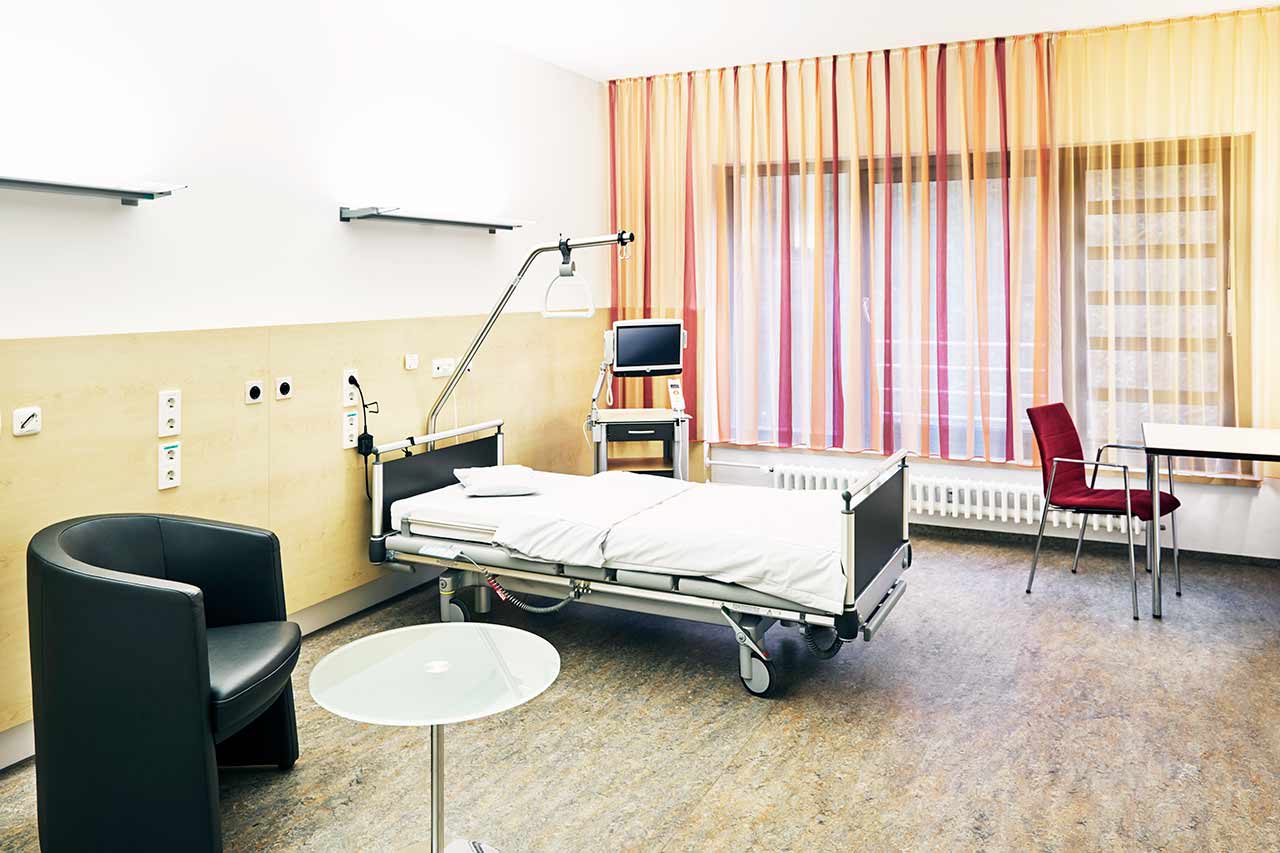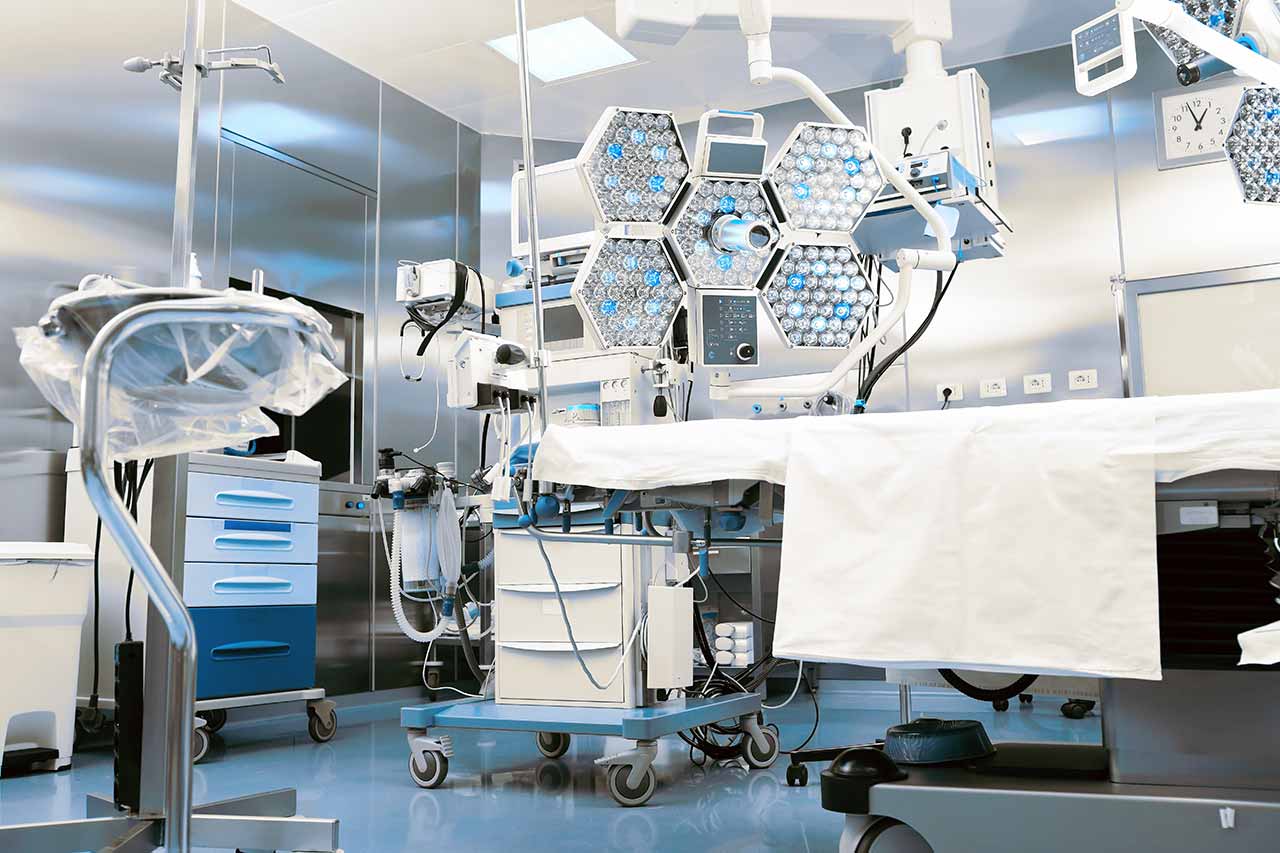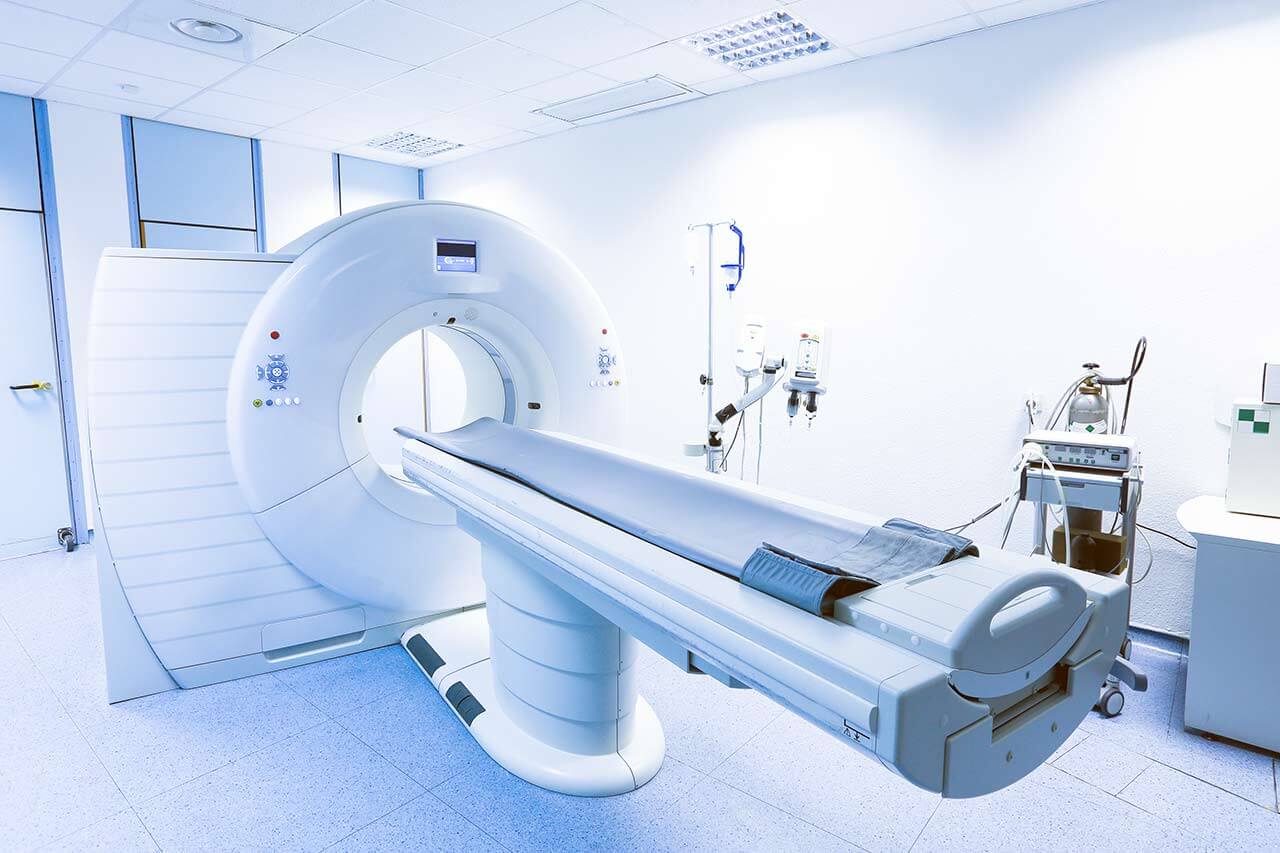
The program includes:
- Initial presentation in the clinic
- clinical history taking
- review of medical records
- physical examination
- laboratory tests:
- complete blood count
- biochemical analysis of blood
- inflammation indicators (CRP, ESR)
- TSH-basal, fT3, fT4
- indicators of blood coagulation
- individual plan of the chemotherapy
- symptomatic treatment
- the cost of essential medicines and materials
- nursing services
- control examinations
- consultations of related specialists
- recommendations for further treatment
How program is carried out
During the first visit, the doctor will conduct a clinical examination and go through the results of previous laboratory tests and instrumental examinations. After that, you will undergo an additional examination, including laboratory assessment of liver and kidney function, ultrasound scan. Based on the received results, the doctor will elaborate the chemotherapy regimen. If necessary, related medical specialists will be involved in the elaboration of a treatment regimen (tumor board).
Chemotherapy is carried out as the day hospital procedure, without mandatory admission to the hospital. After the placement of a venous catheter, you will stay in a comfortable ward. An infusion system will be connected to the catheter, through which the required drug or a drug combination will be administered. All drugs are administered by intravenous drip, slowly, so the total duration of the infusion can be up to several hours. All this time, doctors and nurses will monitor your health condition closely.
After the course of chemotherapy, you will stay under medical supervision in the ward for a few more hours. If your general condition is good, your doctor will allow you to leave the hospital. You will receive the medical report with detailed recommendations regarding further treatment. In the future, you will be able to have a distant consultation with your attending physician and schedule the next course of chemotherapy, if necessary.
Required documents
- Medical records
- MRI/CT scan (not older than 3 months)
- Biopsy results (if available)
Service
You may also book:
 BookingHealth Price from:
BookingHealth Price from:
About the department
The Department of Oncology, Hematology, Immunology and Bone Marrow Transplantation at the Hospital Kassel provides top-class medical services for the diagnostics and treatment of malignant diseases of the blood, bone marrow and lymphatic system, as well as solid malignant tumors – gastrointestinal, lung, breast tumors, etc. The department demonstrates excellent results in autologous bone marrow transplantation for the treatment of various types of leukemia. The medical facility has advanced diagnostic equipment for the detection of the slightest anatomical changes in the body, including before the onset of symptoms. The medical facility regularly holds interdisciplinary tumor boards, during which the specialists from related medical fields cooperatively develop the optimal cancer treatment regimen individually for each patient. This approach allows the doctors to successfully treat patients even with extremely complex clinical cases. The patients with advanced stages of cancer are provided with palliative care aimed at relieving symptoms and improving the quality of life. Psycho-oncological care is an obligatory part of the therapeutic process. Depending on the particular clinical case, the treatment can be provided both on an inpatient and outpatient basis. In addition, it is possible to undergo a course of therapy in a day hospital. The department is headed by Prof. Dr. med. Martin Wolf.
In total, the department employs 13 doctors, 7 of whom are board certified specialists in oncology and hematology. In addition, the patients receive care from the highly professional nursing team of 40 employees with additional qualifications in caring for cancer patients. The hospital has 52 beds inpatient treatment, 8 of which are designed for palliative care for patients with advanced stages of cancer. In addition, the department has 12 special units for bone marrow transplantation in patients suffering from leukemia.
The first stage in the treatment of blood malignancies and solid tumors is comprehensive diagnostics, which includes many laboratory and instrumental tests: blood tests, bone marrow aspiration, molecular genetic and molecular biological tests, histologic and cytogenetic examinations, X-ray, ultrasound, CT, MRI, interventional diagnostic procedures (for example, biopsy), etc. The required set of studies is determined for each patient individually after a general clinical examination and study of the patient's medical history. With the results of the diagnostic tests, the doctor holds a consultation with the patient, during which he informs him about his diagnosis and possible treatment options. Each patient is provided with an individual step-by-step treatment regimen, which is developed during an interdisciplinary tumor board with the participation of oncologists, radiologists, hematologists, surgeons, radiation therapists and other necessary specialists.
The department's doctors have a huge number of modern treatment methods, the effectiveness of which is recognized throughout the world. The main types of therapy used in the department's clinical practice for the treatment of solid malignant tumors include surgical treatment (in collaboration with colleagues from the Departments of Neurosurgery, Thoracic Surgery, General and Abdominal Surgery, Gynecology, Urology, etc.), radiation therapy, chemotherapy, immunotherapy, targeted therapy and antibody therapy. The first line treatment for patients with blood cancer (leukemia) is chemotherapy. In some cases, chemotherapy does not give a good result, and then hematologists have to resort to bone marrow transplantation. The department specializes in autologous transplantation, which involves the transplantation of the patient's own hematopoietic cells contained in the bone marrow, peripheral and umbilical cord blood. Prior to the transplantation, the patient usually undergoes chemotherapy or radiation therapy for maximum destruction of cancer cells. This is followed by harvesting stem cells (apheresis), which is performed in the department's in-house Blood Bank. The duration of the procedure is 2-4 hours. Depending on the particular clinical case, only one or several procedures may be required, which are performed within several days. If the number of stem cells in the patient's body is not sufficient for harvesting, the doctors use growth factors (for example, granulocyte colony-stimulating factor) to stimulate the formation of blood stem cells. These factors are injected once a day into the subcutaneous fat of the abdominal wall or thigh. The next step is high-dose chemotherapy. The patient also takes special medications for the prevention of side effects. The final stage of stem cell transplantation is the infusion of specially treated stem cells previously obtained during apheresis. After transplantation, the patient is under the close monitoring of hematologists in a special isolated unit in order to avoid infections, rejection of the transplanted bone marrow and other complications.
The department specializes in the diagnostics and treatment of the following diseases:
- Malignant blood diseases
- Acute myeloid leukemia
- Acute lymphoblastic leukemia
- Chronic myeloid leukemia
- Chronic lymphocytic leukemia
- Lymphoma
- Multiple myeloma
- Myelodysplastic syndrome
- Polycythemia vera
- Malignant solid tumors
- Brain cancer
- Head and neck malignancies
- Lung cancer
- Esophageal cancer
- Stomach cancer
- Colon cancer
- Sarcoma
- Kidney cancer
- Bladder cancer
- Breast cancer
- Ovarian cancer
- Prostate cancer
- Testicular cancer
- Neuroendocrine tumors
- Other pathologies
The department's range of diagnostic and therapeutic services includes:
- Diagnostics
- Blood tests
- Blood smear microscopy
- Bone marrow aspiration
- Lumbar puncture
- Molecular genetic and molecular biological tests of the blood and tumor tissue
- Histologic and cytogenetic examinations of the bone marrow and tumor tissue
- Imaging diagnostic tests
- X-ray
- Ultrasound
- CT scan
- MRI
- PET-CT
- Interventional diagnostic procedures, including CT- and ultrasound-guided puncture
- Drainage system placement
- Treatment
- Surgical resection of solid malignant tumors
- Chemotherapy
- Radiation therapy
- Antibody therapy
- Immunotherapy
- Hormone therapy
- Targeted molecular therapy
- Autologous bone marrow transplantation
- Palliative care for the alleviation of symptoms in advanced stages of cancer
- Other diagnostic and treatment methods
Curriculum vitae
Higher Education and Professional Career
- 1979 - 1984 Study of Human Medicine, Faculty of Medicine, Philipps University of Marburg.
- 1985 Admission to medical practice.
- 1987 Doctoral thesis defense.
- 1985 - 1993 Assistant Physician in the Department of Internal Medicine at the University Hospital Marburg UKGM.
- 1993 Board certification in Internal Medicine.
- 1993 - 1995 Preparation for board certification in Hematology and Oncology, Department of Internal Medicine at the University Hospital Marburg UKGM.
- 1996 Board certification in Hematology and Oncology.
- 1994 Habilitation and PD title.
- 1995 - 1997 Senior Physician with management responsibilities, Department of Hematology, Oncology and Immunology at the University Hospital Marburg UKGM.
- 1997 - 1998 Acting Head of the Department of Hematology, Oncology and Immunology at the University Hospital Marburg UKGM.
- 1999 - 2002 Senior Physician with management responsibilities, Department of Hematology, Oncology and Immunology at the University Hospital Marburg UKGM.
- 2001 Extraordinary Professorship at the Philipps University of Marburg.
- 2002 Certified by the European Society for Medical Oncology (ESMO).
- Since 2003 Chief Physician of the Department of Oncology, Hematology, Immunology and Bone Marrow Transplantation at the Hospital Kassel.
Photo of the doctor: (c) Klinikum Kassel
About hospital
The Hospital Kassel is a progressive medical facility with a huge medical team, which provides high-quality medical services in all branches of modern medicine. The hospital is part of the regional medical Gesundheit Nordhessen Holding, which unites 5 top-class medical centers, including specialized rehabilitation clinics. With 1,281 beds, the hospital is known as the largest medical complex in the federal state of Hesse. The hospital has 32 specialized departments with highly qualified doctors and specially trained nursing staff in each department. The team of 3,200 employees takes care of the health of patients. The main value for each employee is the patient's health. The professional skills of the medical staff in combination with state-of-the-art medical and technical equipment of the hospital provide excellent opportunities for the treatment of patients with pathologies of any severity.
The hospital provides treatment to over 55,000 inpatients and about 140,000 outpatients every year. Medical care is provided to both German citizens and many patients from foreign countries. Such high rates are the evidence of excellent quality of medical services and the high credit of patients' trust.
The hospital has created a wonderful atmosphere, which contributes to the rapid recovery of patients. All diagnostic and therapeutic rooms, operating rooms, as well as patient rooms are designed taking into account modern standards of European medicine in order to ensure maximum comfort of each patient. All employees working in the hospital provide the patient with understanding and respect, as well as support him in every possible way during the entire therapeutic process.
The hospital successfully implements a quality management system. It uses its own quality management system implemented by the medical Gesundheit Nordhessen Holding, as well as the IQM (Initiative Qualitätsmedizin) monitoring system. As part of healthcare quality management, the hospital annually clearly provides reports on its clinical activities, the success of diagnostics, treatment, level of patient care, etc. Thus, the hospital stands for maximum openness in its work and makes every effort to maintain the highest level of quality of medical care.
Photo: (с) depositphotos
Accommodation in hospital
Patients rooms
The patients of the Hospital Kassel live in comfortable single, double and triple rooms. The patient rooms are made in a modern design and pastel colors. A standard patient room includes an automatically adjustable bed, a bedside table, a wardrobe, a table and chairs for receiving visitors, a TV and a telephone. The patient rooms have Wi-Fi. Each room has an ensuite bathroom with shower and toilet.
The hospital also offers enhanced-comfort patient rooms. Most of these rooms have a balcony. The bathroom additionally includes a hairdryer, towels and toiletries.
Meals and Menus
The patient and the accompanying person are offered tasty and balanced three meals a day. If for some reason you do not eat all foods, you will be offered an individual menu. Please inform the medical staff about your food preferences prior to treatment. The patients staying in enhanced-comfort rooms are provided with an individual menu every day.
The hospital also has several cafes where one can have a cup of tea or coffee, taste delicious pastries, salads, main hot dishes, pizza, etc.
Further details
Standard rooms include:
Religion
The religious services are available upon request.
Accompanying person
During the inpatient program, the accompanying person can live with the patient in a patient room or a hotel of his choice. Our managers will help you choose the most suitable option.
Hotel
During an outpatient program, the patient can stay at the hotel of his choice. Our managers will help you choose the most suitable option.





